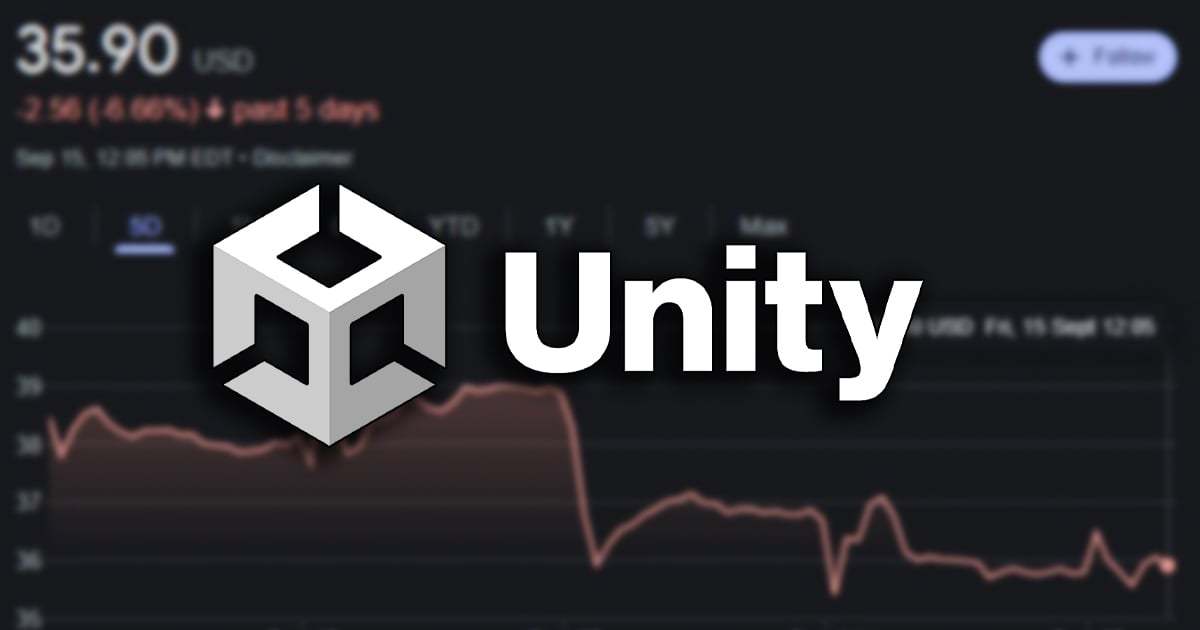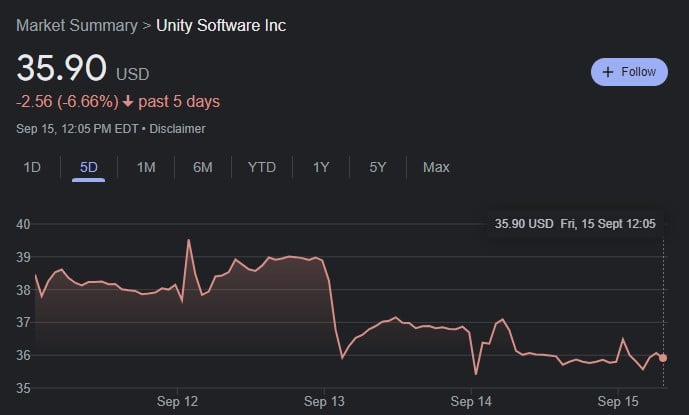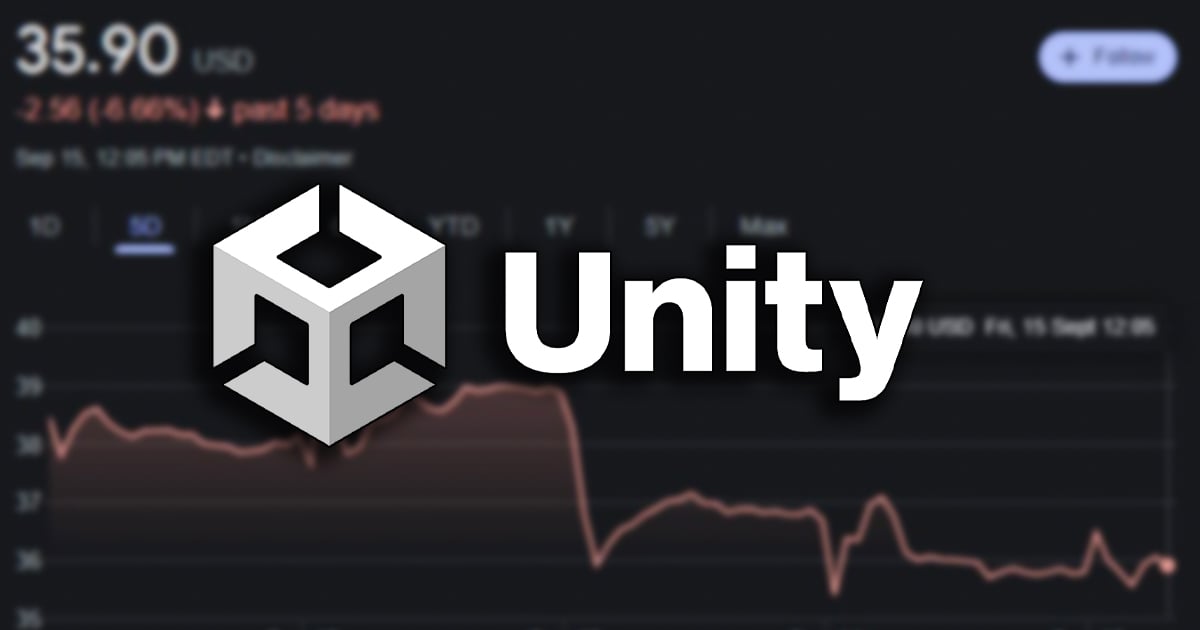
- Unity faces developer backlash over its controversial runtime fee announcement, causing a significant shift in sentiment against the company.
- Top Unity officials, including the CEO, sold shares just days before the fee announcement, leading to concerns about the company’s future.
- Unity’s attempts to address developer concerns have failed. Developers are considering removing their games from the store to avoid the per-installation fee.
Unity is getting into more and more hot water after announcing a contentious runtime cost. The opinion among developers has dramatically changed against Unity. Recent events, however, indicate that Unity’s management were anticipating criticism.
The senior Unity officials reportedly sold some shares few days prior to the official runtime fee announcement, according a previous story published by Guru Focus. The president and CEO of Unity Software Inc., John Riccitiello, sold 2,000 shares on September 6 for $40 apiece, just six days before Unity announced the runtime cost. It’s noteworthy that Riccitiello bought NONE shares during the previous year and sold 50,610 shares. There’s nothing positive about this trend.
It’s interesting to note that, according to NASDAQ, other top executives and members of the board of directors have also sold their shares, thus the CEO wasn’t the only one. This suggests that insiders with extensive knowledge of the business’s operations are selling off stakes, raising questions about the company’s survival.
On September 1, Tomer Bar-Zeev, the president and CEO of Grow and IronSource, sold 37,500 shares for $37.45 apiece. On August 30, Shlomo Dovrat, a Unity board member and co-founder of Viola Ventures, parted with 68,454 shares for $37.64 apiece, or roughly $2.58 million in shares, in a significant deal.
It’s still unclear why these shares were sold, if it was for diversification or for other reasons. But the history of insider trading by Unity Software Inc. does cause some concern, especially for potential investors. Concerns have been raised by the company’s noteworthy total of 49 insider sales and the absence of insider purchase over the previous year.
Developer complaints have not been adequately addressed by Unity, and frustration is growing every day. Unity’s detractors have been more vocal, with the developer discovering that stock sales had taken place just before the contentious announcement. Since the announcement on September 12, this has caused Unity’s stock value to significantly fall.

When the regulation takes effect on January 1, 2024, Massive Monster, the company behind The Cult of the Lamb, may remove their games from the store to avoid having to pay a per-installation cost.
Buy Cult of the Lamb now, cause we’re deleting it on Jan 1st. https://t.co/nSWg9DP0sh“>https://t.co/nSWg9DP0sh
Cult of the Lamb (@cultofthelamb) September 12, 2023
The outrageous claim made by an independent developer on Twitter that they would owing Unity $360,000 exceeded the revenue from 2.8 million installations of their game.
> make a game
> game is fremium
> game makes 200k from in-app purchases after being installed 3 million times
> now owe Unity 20c per 2.8M installs, $560K
> that s 360K more than we made https://t.co/6fe6Ob35Oj“>https://t.co/6fe6Ob35Ojmichael j foxney (@kurtruslfanclub) September 12, 2023
Unity has not yet addressed this matter since the emergence of the stock sales information. Regarding their runtime cost and how they’ll handle the problem going forward, Unity’s next steps are yet unknown.
